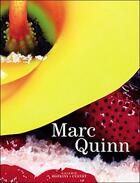-
Date de parution : 01/07/2022
-
Editeur :
Walther Konig
-
EAN : 9783753302393
-
Série :
(-)
-
Support :
Poche
Résumé:
Bersani's prescient and long unavailable polemic against gay assimilation, a plea for "antimonogamous promiscuity," illustrated with artistic interventions.
In 1997, during a symposium at Centre Pompidou, pioneering queer theorist Leo Bersani presented a prescient critique of the assimilative... Voir plus
Bersani's prescient and long unavailable polemic against gay assimilation, a plea for "antimonogamous promiscuity," illustrated with artistic interventions.
In 1997, during a symposium at Centre Pompidou, pioneering queer theorist Leo Bersani presented a prescient critique of the assimilative tendencies that made "gays melt into the very culture they like to think of themselves as undermining." For Bersani, queer activism, mired in micropolitics, had relinquished the radical task of reconfiguring the horizon of the possible. Later published as "Gay Betrayals" in the pioneering (and now unavailable) collection Is the Rectum a Grave?, Bersani's intervention champions a truly disruptive vision of homosexuality, one that betrays the relational, identitarian and communitarian foundations of bourgeois heterosexual respectability through "antimonogamous promiscuity." Building on artistic research into the politics of queer spaces and culture some 20 years later, British artist duo Hannah Quinlan and Rosie Hastings revisit Bersani's polemic with a response in three acts. Through a kaleidoscopic array of drawings, preparatory sketches and egg tempera paintings, a narrative of everyday (homo)sociality emerges.
Leo Bersani (1931-2022) was an American theorist best known for his books Is the Rectum a Grave?, Homos and Receptive Bodies. Born in the Bronx, he graduated from Harvard in 1952 and eventually joined the University of California, Berkeley, where he became an influential teacher, remaining there for the rest of his career.
Donner votre avis















